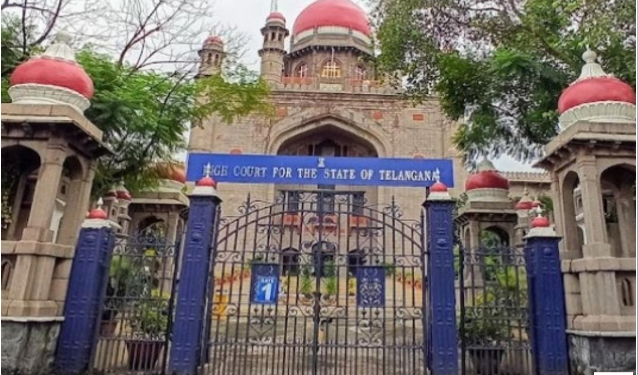Can a husband and his family be automatically held responsible if a wife dies by suicide? The Telangana High Court in its judgement dated June 28, 2022 refused to apply presumption of abetment against a man whose wife committed suicide after 17-years of marriage.
The High Court was hearing State’s appeal against an acquittal order passed by the Assistant Sessions Judge, Sangareddy for the offences under Sections 498-A and 306 of Indian Penal Code.
Case:
Complainant (brother of deceased woman) filed a case stating that his younger sister Sarala’s marriage was performed with the accused (husband) in the year 1997. According to the complainant, his sister’s husband and in-laws allegedly harassed her initially, for which they were counselled. However, there was no change in their attitude.
The couple was blessed with a male child in 2012 ( 15-years after marriage). The baby boy was only two-years old when the mother along with the son hanged themselves.
The complainant accused his brother-in-law and his family and held them responsible for this suicide and registered a case for the offence under Section 498-A and 306 of IPC.
Section 304B IPC | Supreme Court Issues New Guidelines For Trial In Dowry Death Cases
Investigation By Police
During the course of cross-examination, the brother of the deceased woman, his other brother and one of the relatives, all of them admitted that they could not specifically point out a particular harassment that was meted out to the deceased. P.W.1 admitted that the deceased was taken
None of the witnesses could categorically share what kind of injury was inflicted on the woman or how was she harassed by her husband and in-laws over a period of 17-years.
The witnesses could also not share anything about dowry being given at the time of marriage in the year 1997 and there was no evidence that there was any kind of additional dowry was demanded by the respondents/accused.
Section 304B applicable only if death due to demand of dowry and not ‘any cruelty’: Supreme Court
Telangana High Court
Justice K. Surender heard the matter and observed,
When there are no specific allegations in the background of the 1st respondent/A1 taking care of the deceased in all respects as admitted by P.Ws.1 to 3, it cannot be said that only for the reason of the deceased committing suicide, presumption has to be drawn against the respondents that they have abetted suicide.
The said argument has no basis in the background of the case and also the deceased committing suicide in the year 17th year of marriage.
Deceased Woman’s Father Lodged Dowry Death Charges In Angry Mood; Retracts Statement After 10-Years
Section 113A of Indian Evidence Act
The Act stipulates that when the question is whether the commission of suicide by a woman had been abetted by her husband or any relative of her husband and it is shown that she had committed suicide within a period of seven years from the date of her marriage and that her husband or such relative of her husband had subjected her to cruelty, the Court may presume, having regard to all the other circumstances of the case, that such suicide had been abetted by her husband or by such relative of her husband.
Burden of Proof
The High Court also said that the initial burden is always on the prosecution to make out its case and it cannot solely rest upon the death being unnatural/suicidal and asking the Court to draw an inference of abetment. In the absence of any specific allegations, death cannot in any manner be a ground to reverse the well reasoned order of acquittal.
READ ORDER | “Some Sort Of Matrimonial Discord” Cannot Hold Husband, In-Laws Guilty Of Dowry Death: Supreme Court
The High Court then remarked,
None of the neighbours of the deceased and A1’s house ever stated anything about any kind of harassment against any of the accused. In the said circumstances, death of the deceased, which is on account of suicide, cannot be held to be the result of any abetment by the respondents/Accused.
Though it is very sad that the wife of A-1 and the child of two years were found hanging, the respondents cannot be held liable in the absence of any reliable evidence. This is a case of no evidence and death cannot be made basis to find respondents guilty.
The High Court dismissed the criminal appeal while concluding,
In the absence of any specific allegations, death cannot in any manner be a ground to reverse the well reasoned order of acquittal.
READ ORDER AT THE END OF THIS ARTICLE
Can Husband & His Family Be Automatically Held Responsible If Wife Dies By Suicide After 17-Years Of Marriage?
— Voice For Men India (@voiceformenind) July 6, 2022
Read Telangana High Court's Latest Judgement
▪️Brother of deceased woman could not specifically point out how sister was harassed for 17-yrshttps://t.co/Cng83O88hw
WATCH:
KBC 13 Contestant Shraddha Khare Accuses Husband Of Domestic Violence | Watch Other Side
Join our Facebook Group or follow us on social media by clicking on the icons below
If you find value in our work, you may choose to donate to Voice For Men Foundation via Milaap OR via UPI: voiceformenindia@hdfcbank (80G tax exemption applicable)































